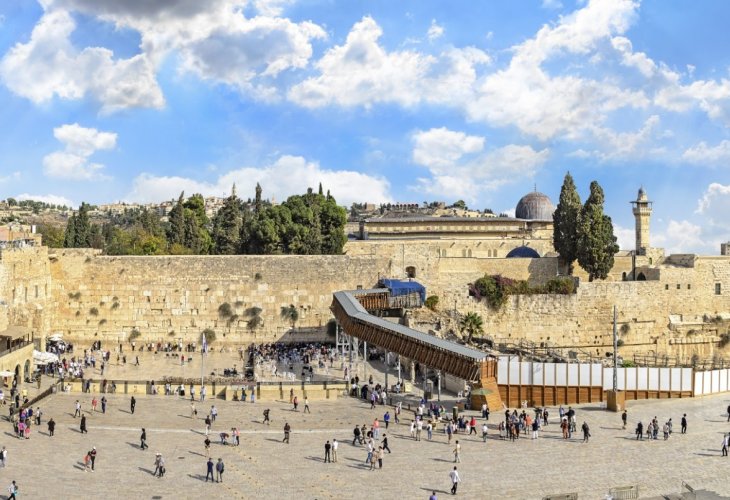Jewish Law
Living in the Land of Israel: Why Is This Mitzvah Such a Challenge?
Discover the spiritual significance of living in the Holy Land, not just despite but because of the hardships this entails
 (Photo: shutterstock)
(Photo: shutterstock)The Talmud teaches: “Three good gifts the Holy One, blessed be He, gave to Israel, and He gave them only through suffering: Torah, the Land of Israel, and the World to Come” (Berachot 5a). The mitzvah of yishuv Eretz Yisrael — dwelling in the Land of Israel — has always been bound up with both joy and challenge. Here are some timeless teachings about its meaning and greatness.
1. The Challenges of Israel Are Part of the Gift
Rabbi Eliezer Papo (the author of the classical work Pele Yoetz) writes that someone who lives in the Land of Israel should rejoice constantly in this mitzvah, and see every hardship as light compared to the privilege of being there.
Rabbi Elazar Azkari (the author of Sefer Chareidim) explains that the trials of life in the Land of Israel — whether from illness or from hostile nations — serve as an atonement for sin, like sacrifices brought on the altar in the Beit Hamikdash (Holy Temple).
The author of Kol HaTor adds that enduring the difficulties of life in the Land of Israel also help a person to get through the difficult times that are characteristic of the Messianic age, when Mashiach comes.
2. Correcting Our People’s Past Mistakes
Rabbi Yonatan Eybeschutz teaches that when Jews suffer hardships in the Land of Israel yet still remain strong in their faith, they repair the historic failings of the Jewish People’s relationship to the Land of Israel.
After God brought us out of Egypt and into the Sinai desert on the way to the Land of Israel, there were many Jews who wanted to return to the material comforts of Egypt rather than facing struggles in the Land of Israel.
Later, in Temple times, when foreign nations waged war against the Jews, instead of doing teshuvah (repenting our sins and correcting our ways), many Jews instead left the Land of Israel and sought refuge in Egypt.
We should never abandon the Land of Israel, unless remaining entails abandoning our faith.
3. We Are Commanded to Love the Land
Rabbi Azkari emphasizes that each and every Jew must actively love and long for the Land of Israel “as a child for his mother’s embrace.” The Torah tells us that Eretz Yisrael is the land which Hashem constantly watches over; there is nowhere else remotely like it.
Throughout history, our Sages have expressed their love for Eretz Yisrael in poetry and other writings, and also by literally kissing the soil of the Land when they have the merit to tread upon it.
Cherishing the Land of Israel brings the time of Mashiach closer, as many phrases in the Torah tell us.
4. The Vilna Gaon’s Passion for the Land
The Vilna Gaon (Rabbi Eliyahu of Vilna, one of the greatest Torah Sages of all time, who lived some two hundred years ago) taught that the mitzvah of dwelling in the Land of Israel applies to every Jew in every generation. Though he attempted to travel to the Land himself, he was forced to return. During that ill-fated journey, he wrote a letter to his family:
“I, with praise to God, am traveling to the holy Land which all long to see, the desire of all Israel and the desire of the Holy One, blessed be He.”
Many of his talmidim (disciples) followed in his footsteps and succeeded in establishing themselves in the Land of Israel despite the harsh conditions in those times. Most settled in the northern town of Tzfat in the Galilee, braving poverty, famine, disease, oppressive decrees, and even an earthquake that claimed thousands of lives. In letters they described the holiness of Eretz Yisrael in glowing terms — its air, its fruits, its mitzvot, and the sanctity that permeates even its dust.
This “aliyah” of the Vilna Gaon’s talmidim was the first large ingathering of Jews to the Holy Land in recent times, predating the Zionist influx by a great many decades.
5. A Legacy of Sacrifice and Love
From all of these teachings, a consistent message emerges: living in Eretz Yisrael is bound up with joy, sacrifice, and eternal reward. Its hardships cleanse sins, correct our people’s historic failures, and bring the final Redemption closer. To live in the Land of Israel and to love it is a mitzvah that sanctifies daily life.

